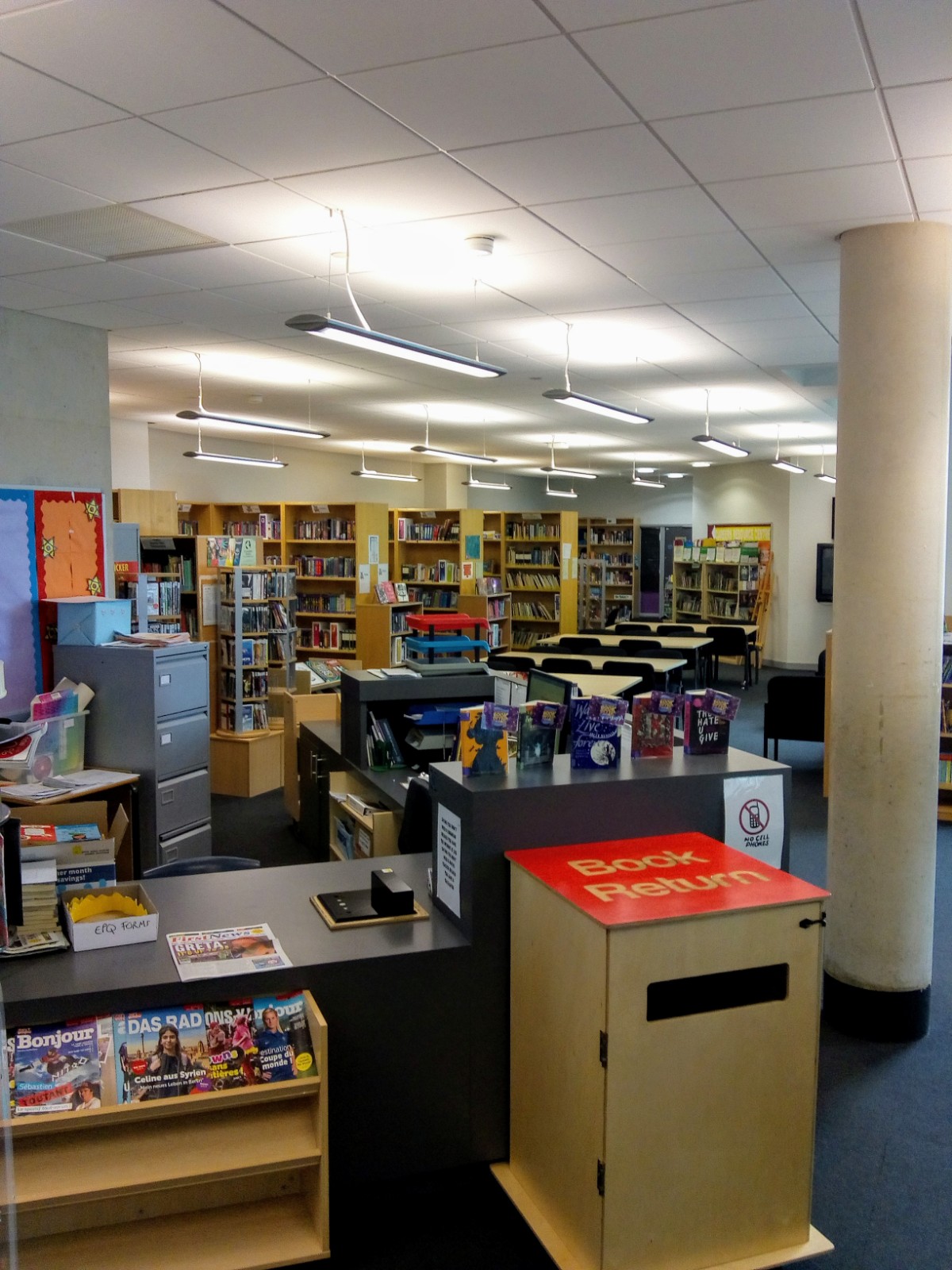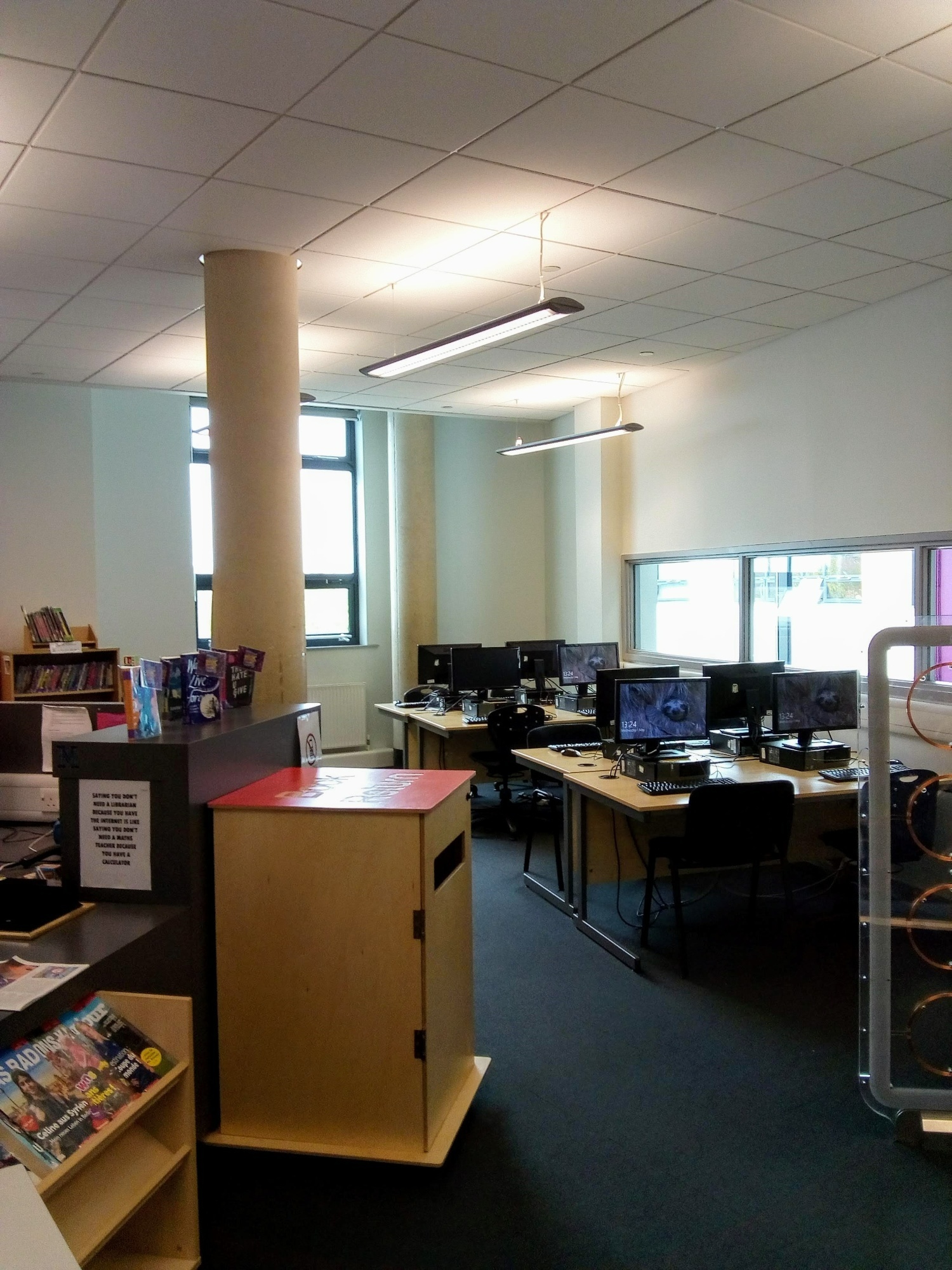Reading
We want our students to be confident, fluent readers who enjoy challenging texts.
Our approach to reading is based on the following three principles:
- Reading ability is the most important predictor of academic success across the curriculum.
- The only way to get better at reading is to read.
- Reading can be vital for student well-being.
Reading in key stage 3
In key stage 3, we have a structured reading curriculum and a focus on reading for pleasure:
- Library lessons: In Years 7 and 8, students have a Library lesson every two weeks. This is delivered by your child’s English teacher. Library lessons are a time to explore different books and styles of literature, browse the library catalogue, share reading recommendations and practise silent reading.
- Measuring reading progress: We monitor students’ reading progress each using a programme called Sparx Reader. Students have Sparx Reader homework every week.
- Private reading time: There are opportunities for private reading in lessons, form time and social time. Students should have a reading book in their bag at all times.
- Reading across different subjects: Developing your child’s reading skills is a whole school responsibility and all subjects include reading within the key stage 3 curriculum. Some subjects, such as History and English, prioritise reading when setting homework. Other subjects, such as Design and Technology, frequently include a reading task at the start of lessons.
- Reading homework diary: In Years 7 and 8, we ask students to read an appropriately challenging book for 20 minutes every school day, and record that reading in their reading homework diary. They are expected to bring a reading book and their homework diary to every English lesson, and to ask their parent or carer to sign their diary every fortnight. In addition, students will be given an ATL grade for their attitude to reading every two weeks.
Reading in key stages 4 and 5
At key stage 4 and 5, your child will be expected to read extensively across all subjects, and the curriculum has been designed to support students’ reading for learning. Teachers will set challenging texts in class and for homework.
The Library
Silverdale has a well-stocked library (or learning resource centre) of over 8,000 books for students and staff to use. It is open every day from 9:15am and at break and lunchtime. The librarian is Mrs Senior.
- Sixth formers are welcome to work in the library at any time.
- Homework Club takes place in the library, every day until 4:15pm.
- Our library catalogue, Accessit library, can be browsed online.

Students in Years 7 and 8 have fortnightly English lessons in the library with their English teacher and the librarian. This lesson focusses on:
- Developing the habit of reading for pleasure.
- Becoming a more confident reader and library user.
- Exploring different sorts of literature and book genres.

From Year 8, students can volunteer as Student Librarians. This is good fun and promotes responsibility, team work, commitment and organisation – and earns achievement points!
Frequently asked questions
What support is there if my child is finding reading difficult?
We have a number of support programmes for students who are struggling with reading. We will contact you if we think your child would benefit from extra support.
What should I do if I’m worried about my child’s reading?
Please contact school. The reading team meet regularly to discuss students’ progress in reading, and we will be able to explore how we can best work with your child.
How can I help at home?
Encourage your child to read for 20 minutes every day, if possible. Talk to your child about what they’re reading – research has shown that adult-child conversations around books are beneficial. Make sure your child has a reading book in their bag and that they change it regularly. If your child is reluctant to read, listening to challenging texts is still very valuable. Read aloud to your child (they're never too old for this!) or there are lots of free audiobooks online, such as via the Libby app and sites like BBC Sounds. Listening to books will give your child access to new vocabulary, challenging ideas and ‘a window on the world’ that they might not be able to access on their own.



